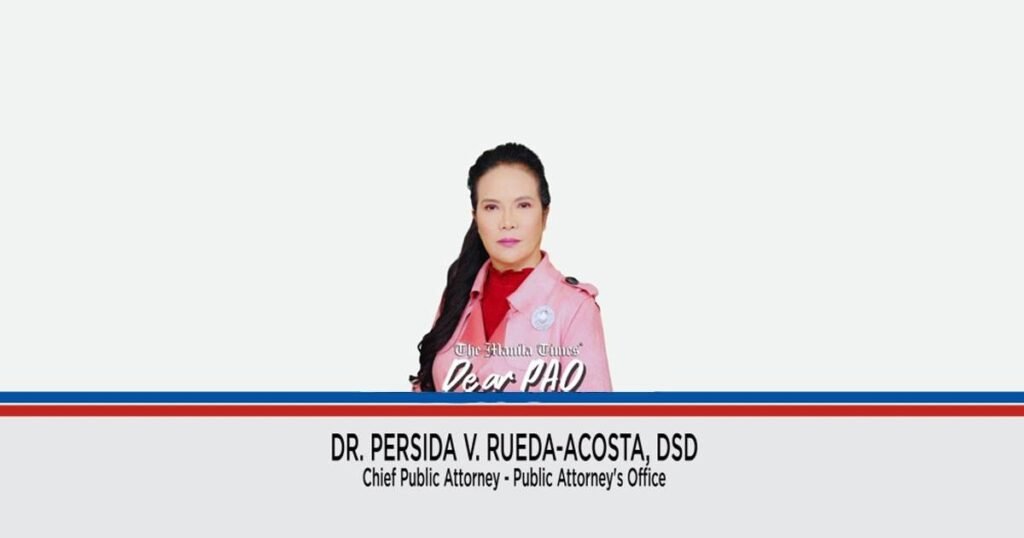Dear PAO,
My uncle works as a company doctor in a manufacturing company, with his shift running from 8 a.m. to 5 p.m., including a regular meal break from 12 p.m. to 1 p.m. His residence is just a three-minute drive away from his workplace. Last Tuesday, he left the clinic around noon to have lunch at his residence. A few minutes later, the clinic received an emergency call from the company’s assembly department when one of its workers had suffered a heart attack. The patient arrived at the clinic at 12:25 p.m. The nurse on duty immediately rushed him to the hospital. When my uncle reached the clinic around 12:30 p.m., the nurse on duty had already left with the patient. The patient died the next day. Following an internal investigation, the company deemed my uncle’s explanation unacceptable and the management charged him with abandonment of post while on duty. May I know if my uncle can be disciplined for abandonment?
Chris
Dear Chris,
According to the Labor Code of the Philippines, every employee is entitled to a one-hour meal break. This provision is not just a matter of courtesy but is enshrined in the legal framework to ensure workers’ health, productivity and overall well-being.
Hours worked and meal periods are specifically provided in Articles 84 and 85 of the Labor Code of the Philippines, as amended, which state that:
“ARTICLE 84. Hours Worked. – Hours worked shall include (a) all time during which an employee is required to be on duty or to be at a prescribed workplace; and (b) all time during which an employee is suffered or permitted to work.
“ARTICLE 85. Meal Periods. – Subject to such regulations as the Secretary of Labor may prescribe, it shall be the duty of every employer to give his employees not less than sixty (60) minutes time-off for their regular meals.”
Also, under Sec. 7, Rule I, Book III of the Omnibus Rules Implementing the Labor Code, it is further stated that:
“Sec. 7. Meal and Rest Periods. – Every employer shall give his employees, regardless of sex, not less than one (1) hour time-off for regular meals, except in the following cases when a meal period of not less than twenty (20) minutes may be given by the employer provided that such shorter meal period is credited as compensable hours worked of the employee:
“(a) Where the work is non-manual work in nature or does not involve strenuous physical exertion;
“(b) Where the establishment regularly operates not less than sixteen hours a day;
“(c) In cases of actual or impending emergencies or there is urgent work to be performed on machinery, equipment or installations to avoid serious loss which the employer would otherwise suffer; and
“(d) Where the work is necessary to prevent serious loss of perishable goods.
“Rest periods or coffee breaks running from five (5) to twenty (20) minutes shall be considered as compensable working time. “
As explained by the Supreme Court in the case of Philippine Airlines, Inc. v. National Labor Relations Commission, GR 132805, Feb. 2, 1999, through Chief Justice (then Associate Justice) Reynato Puno:
“Thus, the eight-hour work period does not include the meal break. Nowhere in the law may it be inferred that employees must take their meals within the company premises. Employees are not prohibited from going out of the premises as long as they return to their posts on time. Private respondent’s act, therefore, of going home to take his dinner does not constitute abandonment.”
In your uncle’s situation, he cannot be disciplined for leaving the clinic during his meal break. Based on our law and jurisprudence, there is no rule requiring an employee to be at the workplace during meal break. Thus, his act of going home to take his lunch cannot be considered an abandonment of work.
We hope that we were able to answer your queries. This advice is based solely on the facts you have narrated and our appreciation of the same. Our opinion may vary when other facts are changed or elaborated.
Editor’s note: Dear PAO is a daily column of the Public Attorney’s Office. Questions for Chief Acosta may be sent to [email protected].


